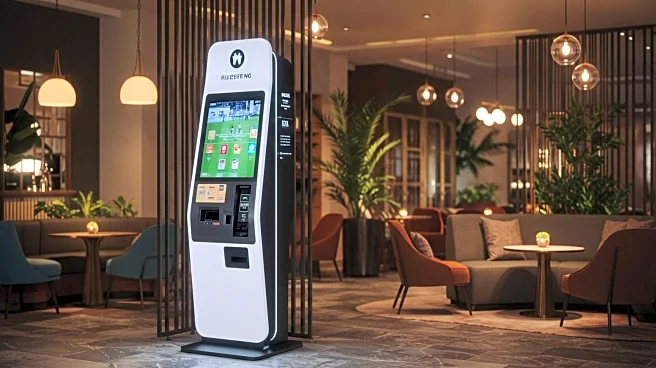What is the story about?
What's Happening?
The hospitality industry is increasingly adopting accessible self-ordering kiosks to improve guest experiences, particularly for individuals with disabilities. These kiosks are designed with inclusive technology, featuring adaptive interfaces such as adjustable heights and tactile keypads. This trend reflects a broader movement towards making technology more accessible to all users, ensuring that individuals with varied accessibility needs can interact with services more efficiently. The implementation of these kiosks is part of a larger effort within the industry to provide a welcoming and efficient experience for all guests.
Why It's Important?
The adoption of accessible self-ordering kiosks in the hospitality industry is significant as it addresses the growing demand for inclusivity in service design. By accommodating guests with disabilities, these kiosks not only enhance user experience but also reduce wait times, thereby improving overall service efficiency. This move can potentially increase customer satisfaction and loyalty, as guests feel more valued and catered to. Furthermore, it sets a precedent for other industries to follow suit, promoting a more inclusive approach to technology and service design across various sectors.
What's Next?
As the trend towards inclusive technology continues, it is likely that more businesses within the hospitality sector will adopt similar solutions. This could lead to further innovations in adaptive interfaces, enhancing accessibility features even more. Stakeholders in the industry may also explore partnerships with technology developers to create customized solutions that meet specific accessibility needs. Additionally, there may be increased advocacy for regulatory standards that mandate accessibility features in public service technologies.















